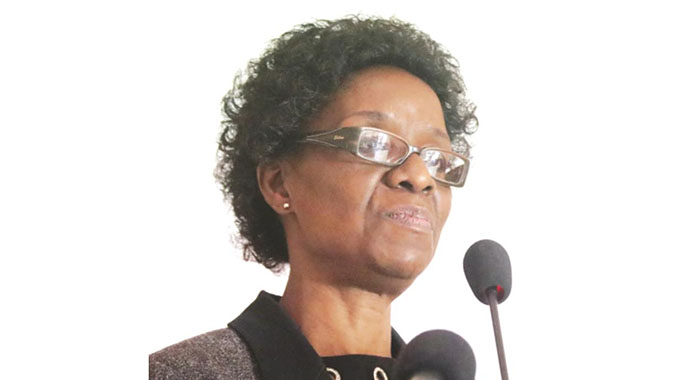25 years after Beijing, women now firmly in driving seat

Ruth Butaumocho
African Agenda
On September 15, 25 years ago, the curtain came down on the 4th UN World Conference on Women, commonly known as the Beijing Conference.
On the same day, thousands of women across the globe, including Africa, drafted the Beijing Declaration and Platform for Action.
Just like the Beijing Conference, the main objective of the Beijing Declaration and Platform for Action was to empower women.
The platform of action was to underscore commitment made at global, regional and sub-regional levels to end discrimination, promoting women’s rights and advancing gender equality and women’s empowerment.
Looking back, the journey towards gender equality has not been smooth. It has been tumultuous, punctuated by uncertainty, fear and all forms of conspiracy theories.
At one time, multitudes of women who worked tirelessly to educate their counterparts on the Beijing narrative were ridiculed and even labelled “prostitutes”.
Some were even beaten up and kicked out of their marriages, amid suspicions that they were bent on destroying societally prescribed roles of women.
Despite all those trials and tribulations, milestones have been achieved.
Like the majority of African countries, Zimbabwe has made significant progress in pushing for gender equality and women empowerment.
The country now boasts several legislative policies and administrative measures that were promulgated to facilitate the implementation of a number of areas deemed critical to ensure the success of the declaration.
The Legal Age of Majority Act remains one of the progressive pieces of legislations that put women on pedestal towards gender equality.
Other legislative pieces that were to follow were largely hinged on that Act.
Some of the measures that were later taken included laws and policies to protect girls and women’s rights in employment, decision making, health, education, economic empowerment, access and control of resources and the family.
Within the same spaces, regression has also been reported, as attested by an increase in the number of women living below the poverty datum line, a spike in gender-based violence, child marriages and a decline in the number of women participating in the economy and politics.
Achievements
To ensure that women and girls could be accorded equal status with men, the Government successfully promulgated several laws to promote and ensure gender equality and women empowerment in the country.
All the legislative pieces have since been enshrined in the Constitution.
The Constitution has turned out to be an empowering one with strong provisions to advance gender equality and the rights of women and girls.
Signed into law in 2013, the Constitution has legal provisions to the Government, private sector, traditional and religious leaders, all institutions in society to ensure that everyone has equal access to resources and opportunities
However, the greatest challenge lies in implementation, where people mandated with the responsibility to accord access completely ignore and disregard processes to promote gender equality.
Lack of political will within institutions continue to impede gender equality.
Increased women’s access to productive resources
For long, women were not able to fully participate in the economy because they were considered as minors and needed the permission of their husbands, fathers or stewardship of a male relative to support their action of intent.
That also extended to their matrimonial home, where they would walk away with nothing in the event of death of a spouse or during divorce.
In 1985, the Government enacted the Matrimonial Causes Act No 33, which provided for equitable distribution of matrimonial assets upon divorce.
Other legislative pieces that were to follow liberated women’s cause on social, political and economic issues.
Women are now able to vote, access funds from financial institutions and enter into business deals without consulting a male relative.
Women can now own land in their own right, moving away from the traditional norms and customs where they only accessed land through their husbands, fathers and other male relatives.
As a result of progressive laws, women now have control over the means of production.
However, despite the changes in the policy position, women’s access to land remains limited due to a variety of factors, with patriarchy being the biggest impediment.
Non-implementation of existing policies has also worked against women accessing land.
Challenges
Gender-based violence has regressed gains made towards equality, amid continued violation of women over the years.
Many women continue to face all forms of violence despite the enactment of the Domestic Violence Act in 2006.
Hundreds of women have been maimed, psychologically traumatised or even lost their lives at the height of gender-based violence.
The future
While legal gender equality may be nearly achieved, Zimbabwe still has a long way to go to achieve equality in practice.
Continued abuse of women, rigid gender stereotypes where women are treated as minors, violence against women, under-representation of women in political and economic spaces and social structural obstacles stand in the way of gender equality.
Rampant inequality, the climate emergency, conflict and the alarming rise of exclusionary politics all threaten future progress towards gender equality, not only in Zimbabwe, but across Africa.
UN Women’s executive director Phumzile Mlambo-Ngcuka could not have summed it better when she said: “The review of women’s rights shows that, despite some progress, no country has achieved gender equality. Equality isn’t just one quarter of the seats at the tables of power. But that’s the current reality of women’s representation, across the board.”









Comments